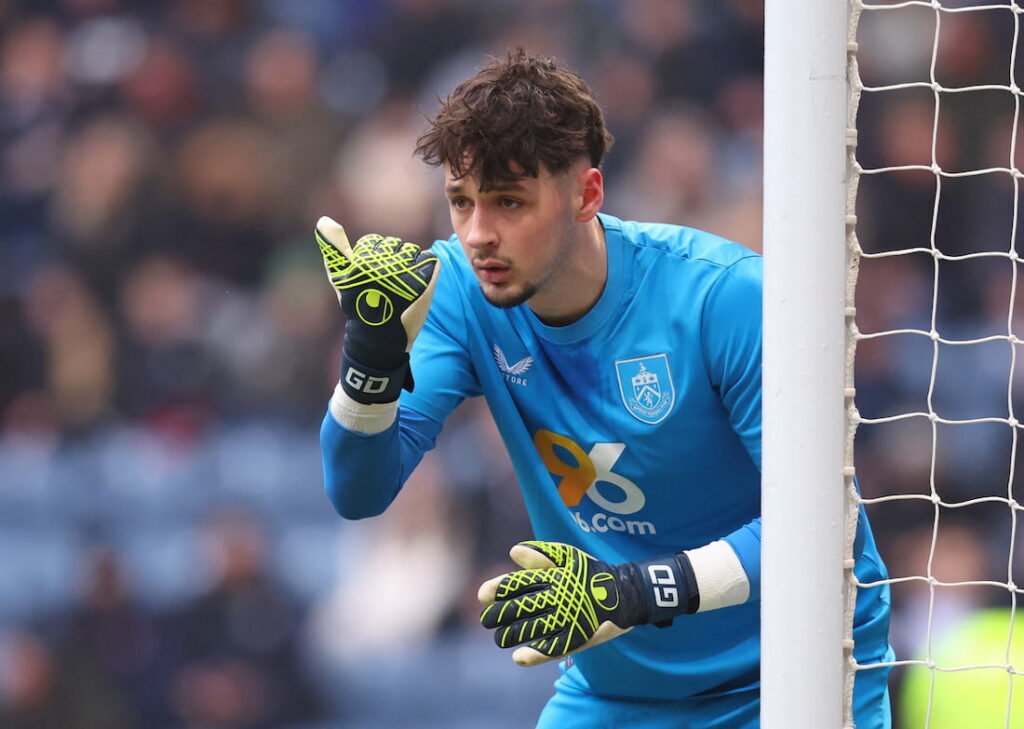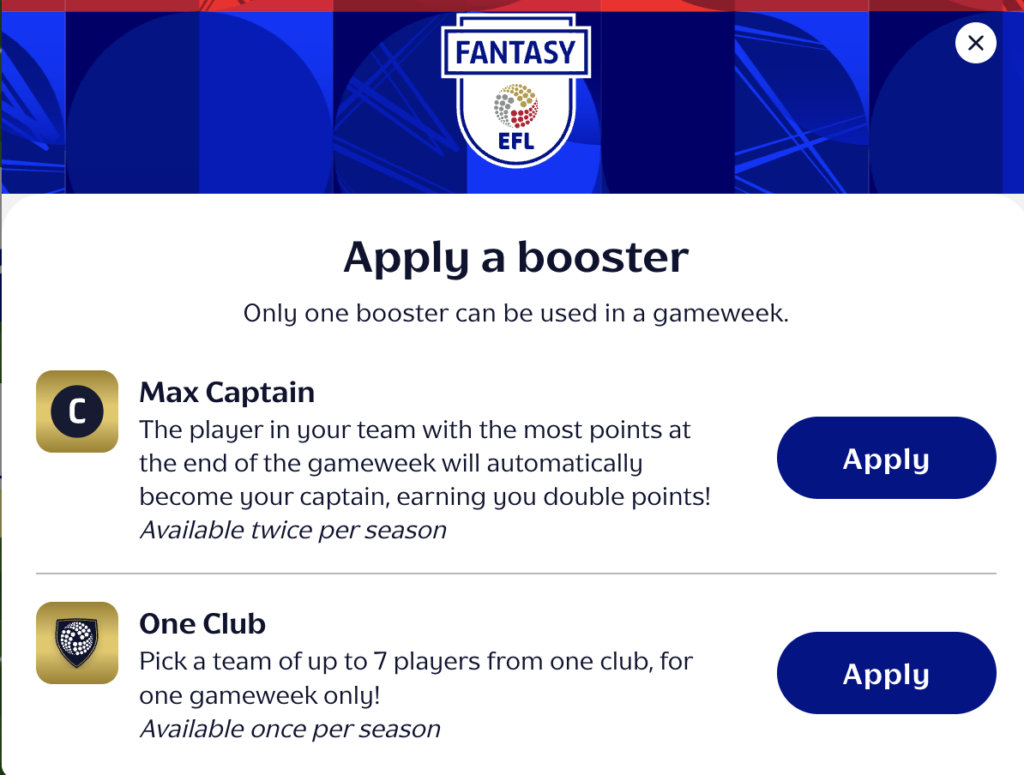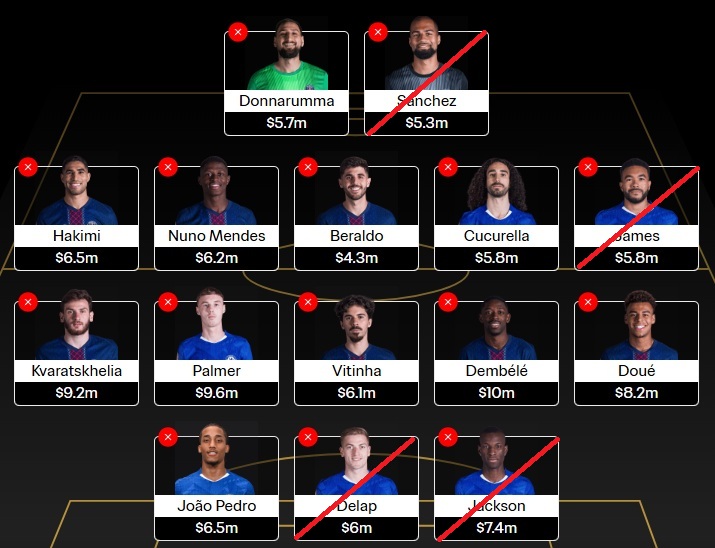Fantasy EFL 25/26 is officially live – and now it’s time to get familiar with the key rule changes that could impact managers.
A comprehensive strategy guide, alongside plenty of other articles, is in the works, ahead of the new season.
For now, this is an immediate deep-dive into some of the new rules and updates, and our initial thoughts on how they could shape our seasons.
SIGN UP TO FANTASY EFL NOW
Don’t forget that this season, FFScout are creating the ultimate EFL fan panel. We’re looking for influencers, fanzine contributors, podcasters, or simply super passionate fans of various EFL clubs. No matter if you’re a devoted Championship supporter or a fan of a newly promoted EFL team in Barnet or Oldham Athletic, we want to hear your thoughts! Click here to find out more.
GOALKEEPER UPDATES

While seeing a goalkeeper score is a rare event, it’s a Fantasy manager’s ultimate dream.
Goal-scoring keepers were a no-show last season, but this year, if a keeper finds the net, they’ll snag an extra 10 points.
Assists from keepers, while more common, will continue to return three points. Last season, Leyton Orient’s Josh Keeley (G), on loan from Spurs, did score against Oldham Athletic in the FA Cup, but unfortunately, cup goals don’t count towards league Fantasy points.
The last time a ‘keeper scored in an EFL match was Ben Wilson (G) for Coventry vs Blackburn in April 2023.
Speaking of scoring, goalkeepers are also getting a significant upgrade for penalty saves!
Instead of the previous three points, keepers will now bag five points for every stop from the spot.
Many of you will remember James Trafford’s (G) heroic performance for Burnley, where he made two penalty saves from Sunderland’s Wilson Isidor (G).
Under the new rules, those two saves alone would have earned the number one an impressive 10 points.
Last season, Grimsby Town’s Jordan Wright (G), now at Newport County, made three penalty saves, the most in the EFL.
OWN-GOALS

This season, players who score an own goal will be penalised three points (-3). While this rule primarily impacts defenders, it applies to all positions.
Unlike last year, where own goals might have gone unpunished, this year there’s a clear deduction. Fortunately, no player stood out for scoring multiple own goals last season, though 13 players did score two (such as Ben Gibson (D)).
Across the entire EFL last season, a total of 120 players scored own goals. While this number might seem high, it only works out at roughly three a Gameweek.
The inclusion of these minus points felt inevitable, unfortunately.
CLEARANCE POINTS

Moving on, clearance points have been slightly nerfed. Last season, every three clearances resulted in one point. Whereas in 2025/26, it’s every four clearances for a point.
Anthony O’Connor (D) of Harrogate Town made 468 in 45 appearances, making up 156 of his 295 points. Despite keeping just 10 shutouts in 45, this aided the centre-back in a monster tally for a mediocre defence.
However, if that was this season, the number 15 would’ve only been rewarded with 117 points.
While a defender racking up 20+ clearances in multiple games is certainly impressive, it doesn’t hold the same allure it once did in Fantasy EFL. The meta has shifted, and with it, our focus has moved slightly away from pure clearance volume.
That said, we’re still ready to crown the clearance kings, including Shrewsbury’s Sam Stubbs (D) or Blackpool’s Oliver Casey (D).
MIDFIELDERS / FORWARDS

Last season, very infrequently did managers opt for a 2-2-2, given the lack of routes to points for forwards. This, however, is all about to change.
Last season, forwards could only score points through two every key passes (+1), every two shots on target [SoT] (+1), and goals scored (+5).
Instead, this season, every SoT for both midfielders and forwards results in one point, which boosts their appeal.
Michael Cheek (F) took 48 shots on target in the previous campaign. Notts County’s Alassana Jatta (F) registered 45, the same as Stockport County’s Kyle Wootton (F).
However, in reality, the appeal of midfielders is boosted tenfold. Players like Davis Keillor-Dunn (M), who is listed as a midfielder, is featuring up front for Barnsley at present. He landed 43 SoT for the Tykes, while Doncaster Rovers’ Luke Molyneux (M) clocked up 39.
A 1-2-3-1 formation is therefore back on the table. Midfielders, unlike forwards who are all about scoring, have so many more ways to rack up points since they contribute at both ends of the pitch.
Still, you can guarantee the 1-3-2-1 formation will always have its fans.
CLUB POINTS
Having two club picks gives Fantasy EFL a unique feel, and can literally make or break your Gameweek.
Last season, home teams had a maximum of nine points up for grabs, while away sides could score 11. This season, the parameters have changed.
Home teams can score a maximum of 11 points, while away teams can earn up to 13. This means that, in rare cases, you could achieve a remarkable 26 points from club picks alone!
All existing rules apply, with one key change for goals scored: two extra points will now be awarded for 4+ goals, in addition to the two points already given for 2+ goals.
Early in the season, many managers focused on away clubs, chasing high scores. However, given the unsurprising prevalence of home wins, strong away club performances were rarer and more valuable.
Ironically, we had 13 results which would’ve seen managers score 13 points:
- Leeds United won 0-4 (A) at Watford in February
- Huddersfield Town won 0-4 (A) at Bolton in September
- Wigan Athletic won 0-4 (A) at Bristol Rovers in September
- Wycombe Wanderers won 0-5 (A) at Stockport in November
- Charlton Athletic beat Northampton Town 0-5 (A) in December
- Crawley beat Rotherham 0-4 (A) in March
- Northampton beat P’boro 0-4 (A) in April
- Charlton beat Wycombe 0-4 (A) in April
- Chesterfield beat Crewe 0-5 (A) in August
- Walsall beat Swindon 0-4 (A) in August
- Chesterfield beat Salford 0-4 (A) in March
- Swindon beat Fleetwood (A) 0-4 in April
- Swindon beat Grimsby (A) 0-4 in April
There were multiple occasions when clubs would’ve scored 11 points for the 4-0+ home wins, including Leeds United’s 7-0 victory over Cardiff City in February.
The difference between a decent mini-league finish and a winning one might just come down to prioritising free-scoring clubs with solid defences. Don’t go heavy on away sides early on, but don’t only opt for home teams. Every point counts!
NEW CHIP

New for 2025/26, the One Club chip allows you, for one Gameweek only, to select as many players as you like from one club, bypassing the usual two-club limit. This chip can be used at any point throughout the season.
You can only apply your One Club chip before the Gameweek kicks off and you can reset it any time before the first fixture begins.
Unlike the Max Captain, which is available twice per season, the One Club chip is available just once.
NO TRIPLE GAMEWEEKS… YET
Not a rule change as such but still worth noting!
Last season, we had the joy of a festive Triple Gameweek between Boxing Day and New Year’s Day.

This year, Boxing Day falls on a Friday, making a Triple Gameweek unfeasible with the current schedule.
However, don’t completely rule out one happening later in the campaign.
Last season saw a significant increase in fixture congestion compared to initial projections. We started with 10 Double Gameweeks and just one Triple Gameweek. However, due to postponements, this ballooned to 19 Double Gameweeks and two Triple Gameweeks (the latter just for Birmingham) by the season’s end.
Looking ahead to the upcoming campaign, we’ve already got 16 Double Gameweeks scheduled. The first of these will occur in Gameweek 3, when League One and League Two teams are scheduled to play twice between Saturday and Wednesday.
Given how many rearrangements we had last season due to weather and other mitigating factors, including a power failure at Fratton Park, 16 is likely to end up being a lot more!
PLAN AHEAD
The final key change to note, and one that is music to the ears of all managers, is that we can now create our teams for the next Gameweek, ahead of the current Gameweek!
Once Gameweek 1 kicks off, for example, managers can already begin planning for Gameweek 2.
It’s a necessary and well-appreciated move from the EFL.
All in all, positive changes. The season countdown is on!
- READ MORE: Check out our EFL Fixture Ticker for 2025/26




That's so last season.
»He should be 6.5
»Even without recalculating bonus points, it would still be good to know which players they were. And were some of them denied fantasy assists multiple times?
»Would rather myself do a WC/BB back to back after maybe 8-12 weeks, with better data on who is 99% starting week-in-week-out rather than just line up's in friendlies.
»I would always look at fixtures, players, scout picks, polls etc while typing typing out comments and replies, incredibly useful in fact
»